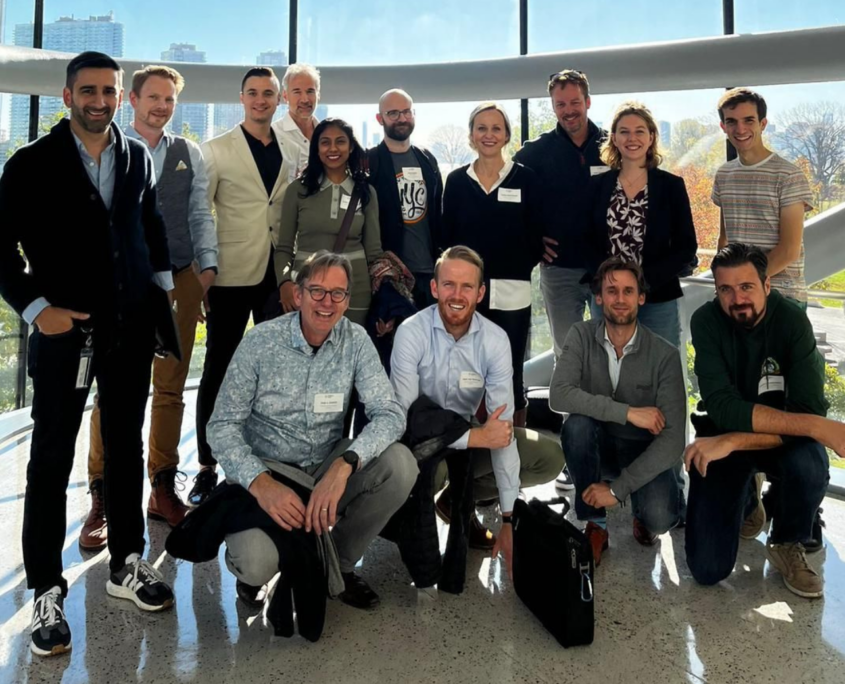December 21, 2023
Can Dutch academics become super connectors?

In the past 15 years, much has changed in the United States startup ecosystem. Startups, valorisation and impact have become core in the business model of American universities. Techleap, KNAW and ScaleNL support the scalability of academic startup competition winners by organising a visit to four American Tech-Transfer hubs. During our visit, we heard an American academic founder say: “You ask me which competition I’m afraid of, but we’re happy with each commercialisation, because they prove that the market is ready for this.”
The MIT motto “impact, not income” shows the importance of raising the profile of research, either through commercialisation or communication. It allows academics to establish relationships and build networks both within and outside their field. As was written by the UIIN: Exchanging ideas and getting feedback encourages thinking in more practical terms. And the resulting conversations can lead to collaborations that advance research in ways that individual academics can’t alone.
The public or private background, and the involvement of government plays a significant role in this transition. If universities are paid publicly, who then should benefit from the knowledge acquired? While there is logic in making IP public for the public to use, it often kills the viability of a future business if there is no way to protect your unique selling point. It made us realize something that the Netherlands should take really seriously: the ideas at the root of a spinoff are only the very beginning. Starting a business, thinking bigger and scaling are a whole new ball game.
In 2010 this idea also formed in New York City. Local officials were “[…] worried that the city is not spawning enough technology-based start-up companies with the potential to become big employers like Google. [Therefore,] city officials are inviting universities around the world to create an engineering campus on city-owned land […]” To date, Cornell NYC Tech has developed into a 1 billion USD project with another tripling planned to help diversify the economy, leverage existing NYC industries and create high-value jobs.
The founder journey is crucial to make an impact through scientific breakthroughs. IP rights, facilities such as clean rooms, capital, talent and the market, all have to be aligned for a business to scale. While at UC Berkeley we heard the estimation that roughly one third of professors had an interest and actively contributed to valorisation. This meant that we met many professors that were essentially super connectors. Connecting founders with their network around a (deeptech) specialism. This requires a level of proudness, business sense and ambition in academics. While it’s difficult, it has been done before.
Impact, not income
The MIT motto “impact, not income” shows the importance of raising the profile of research, either through commercialisation or communication. It allows academics to establish relationships and build networks both within and outside their field. As was written by the UIIN: Exchanging ideas and getting feedback encourages thinking in more practical terms. And the resulting conversations can lead to collaborations that advance research in ways that individual academics can’t alone.
The public or private background, and the involvement of government plays a significant role in this transition. If universities are paid publicly, who then should benefit from the knowledge acquired? While there is logic in making IP public for the public to use, it often kills the viability of a future business if there is no way to protect your unique selling point. It made us realize something that the Netherlands should take really seriously: the ideas at the root of a spinoff are only the very beginning. Starting a business, thinking bigger and scaling are a whole new ball game.

 Scaling in tech: Why thinking BIG is the only way forward
Scaling in tech: Why thinking BIG is the only way forward